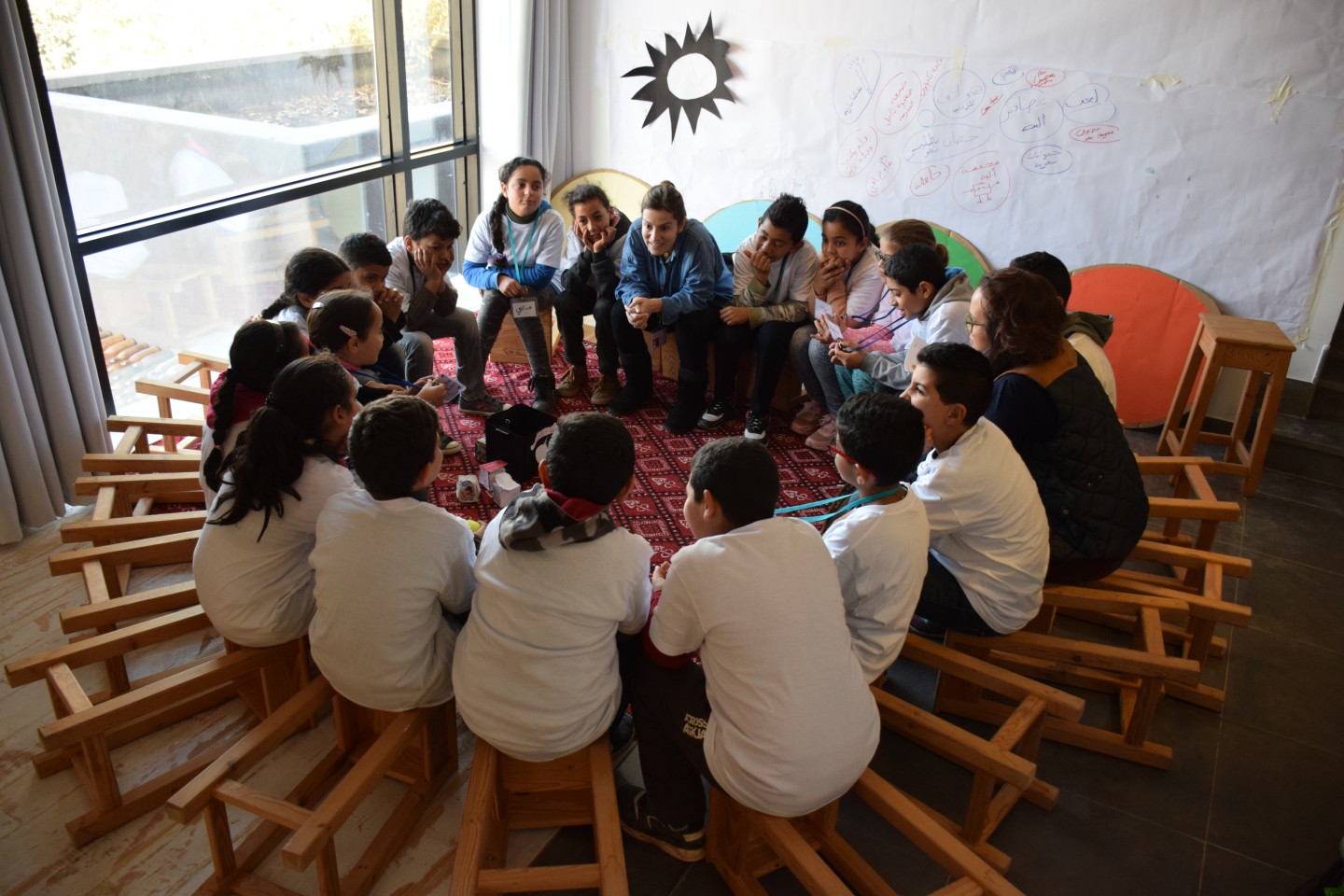Healthcare provided to children with diabetes in Tunisia focuses only on the medical treatment. The project "Art at the service of health" promotes art therapy in the healthcare system of Tunisia. Nejib Raboudi, founder of the project, explains the project's aims and impact.
According to the World Health Organisation, 1.7 million Tunisians are currently diagnosed with diabetes and ten percent of them are children. Degenerative diabetes complications due to unbalanced diet, depression and low self-esteem cost approximately 19 million Tunisian dinar (6 million euro) to public health authorities every year.
Unfortunately, healthcare provided to children with diabetes in Tunisia focuses only on the medical treatment. During my professional experience at the Massachusetts Hospital, I was amazed at the ways art therapy can foster healing and mental well-being of diabetics, and I dreamt about implementing a similar project in Tunisia. When I heard of the Local Cultural Engagement Fund, I jumped at the chance and applied for funding for my project: Art at the Service of Health. My aim was to promote art therapy in the healthcare system in Tunisia.
Two local public institutions helped us implement the project, the Regional Delegations of School Health assisted us in identifying school children with diabetes, and the Higher Institute of Nursing offered us their premises. 136 children diagnosed with diabetes from two governorates, Tunis and Le Kef, have benefited from a multidisciplinary approach. We ran visual art and theatre workshops, encouraging children to explore their emotions and boost their self-esteem and social skills.
We carried out regular medical consultations to monitor children’s blood sugar levels. We hosted educational workshops for schoolteachers and medical practitioners to raise awareness about diabetes. We ran nutrition workshops for parents to support the adoption of healthy family eating as a way to reduce costs related to health complications. And we held psychological and counselling sessions to help improve mental health and well-being.
The children particularly liked the modelling and pottery workshops. These workshops helped them understand that a human being is like soil – we can move from one state to another without being damaged or losing our identity. They also had a positive impact on the children’s behaviour and cognitive functions: “I used to feel lonely and isolated. The workshops helped me build friendships and feel normal,” says Lamjed, 15.
In order to highlight the amazing art works the children made and give them a sense of pride in their achievements, we organised an art exhibition and a theatre play at the end of the project. Families and guests were in tears at both closing events.
I used to feel lonely and isolated. The workshops helped me build friendships and feel normal.
The impact of the project has been rewarding. Blood tests proved that the sugar levels were stabilised among most of the children, and the final psychiatric assessments showed visible improvement of their mental health. The number of children with depressive symptoms dropped from 17 to 2. We believe that we helped them overcome their fears and gain confidence.
We have also helped entrepreneur Chaker, aged 20, who abandoned school and created his breeding project. We enrolled him in certified breeding training provided by the Kef National School of Agriculture. Thanks to this professional certification, Chaker managed to get a loan from the bank and launch his start-up. “The theatre workshops helped me enhance my communication skills; I feel more confident and at ease when I interact with my co-workers, suppliers and bank managers.”
The success of the project is a strategic tool in my advocacy plan with the government health authorities. Art therapy should be democratised in public health facilities. It can reduce expenditure related to diabetes complications such as blindness, neuropathy and kidney failure. I am currently working on raising funds from the private and public health sectors so I can expand the project.
My dream is to create a diabetes multidisciplinary treatment facility in every governorate in Tunisia. I want to help children suffering from this illness express their creativity and discover their talents so they can join the artistic community in Tunisia. I do not think I will ever forget overhearing one of the children – Afif, aged 17 – in a workshop say: “I used to see pity in the eyes of my friends at school. Now they are impressed with the artist I became.”
I used to see pity in the eyes of my friends at school. Now they are impressed with the artist I became.


